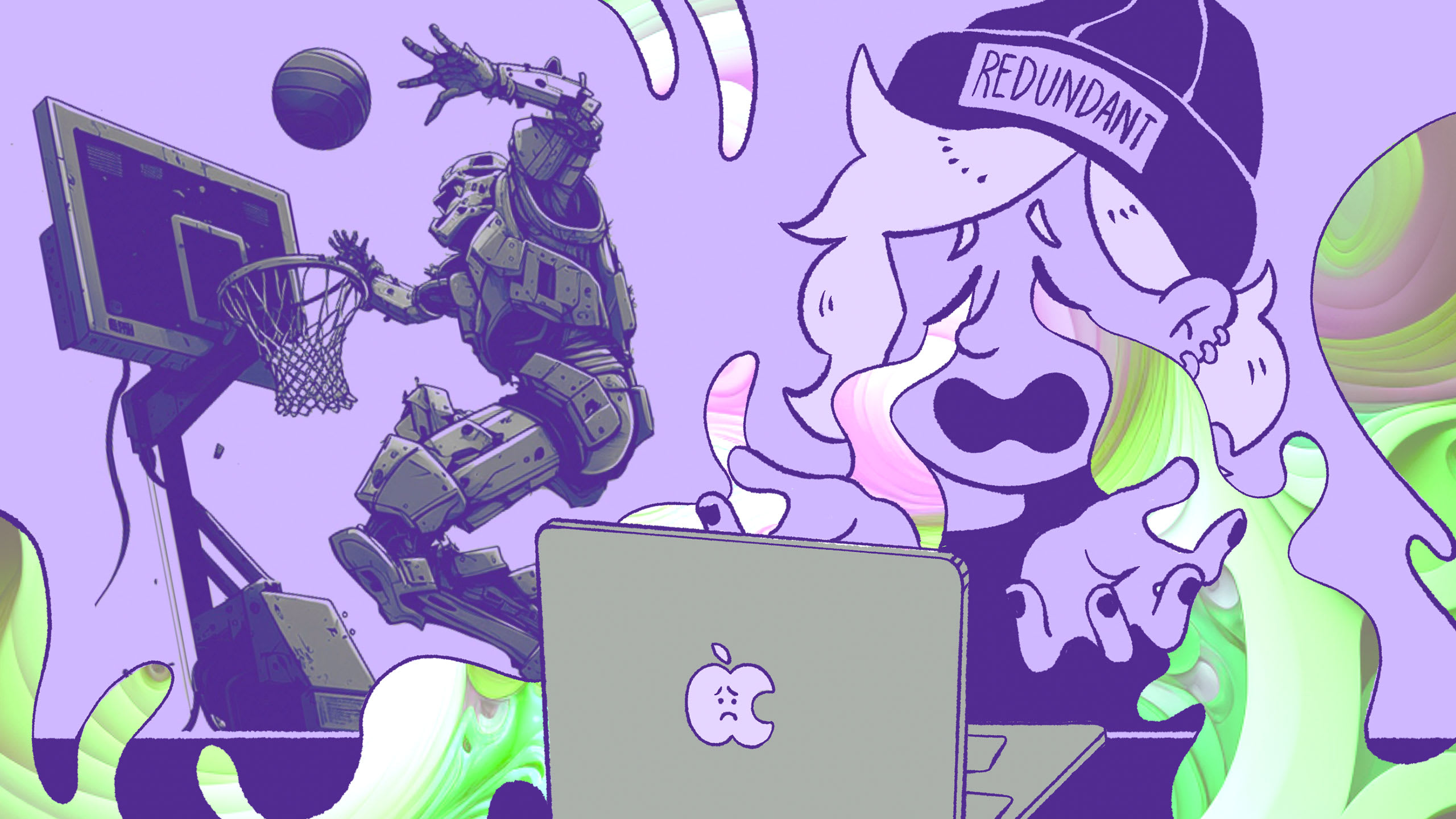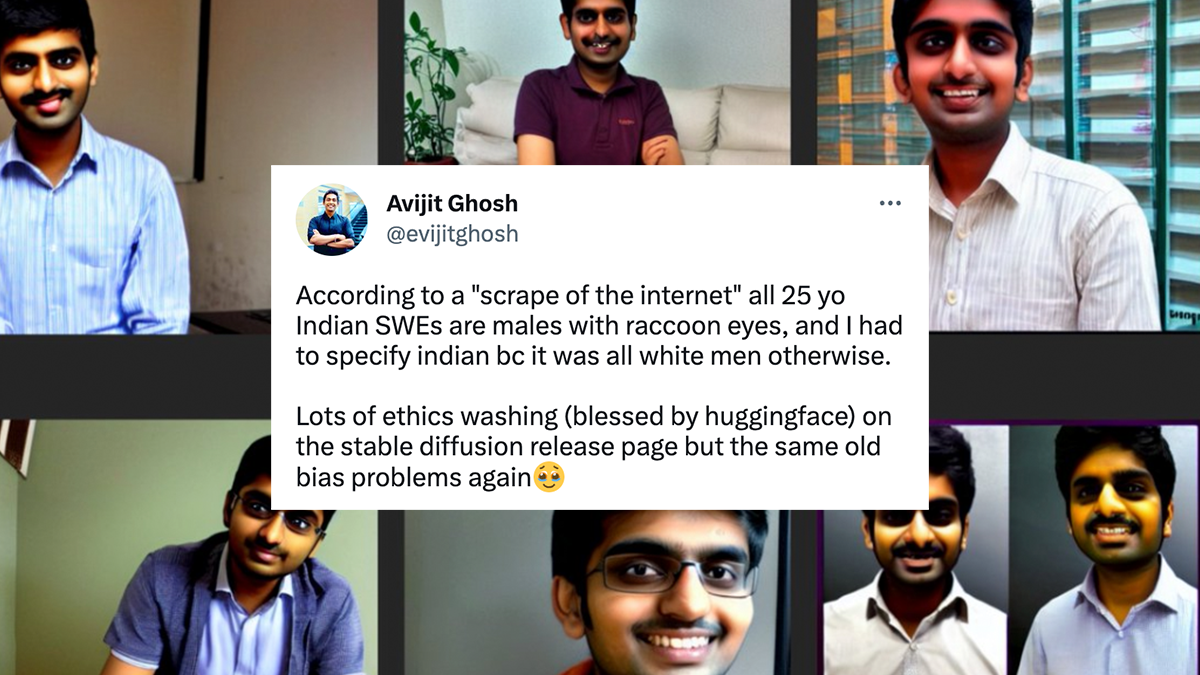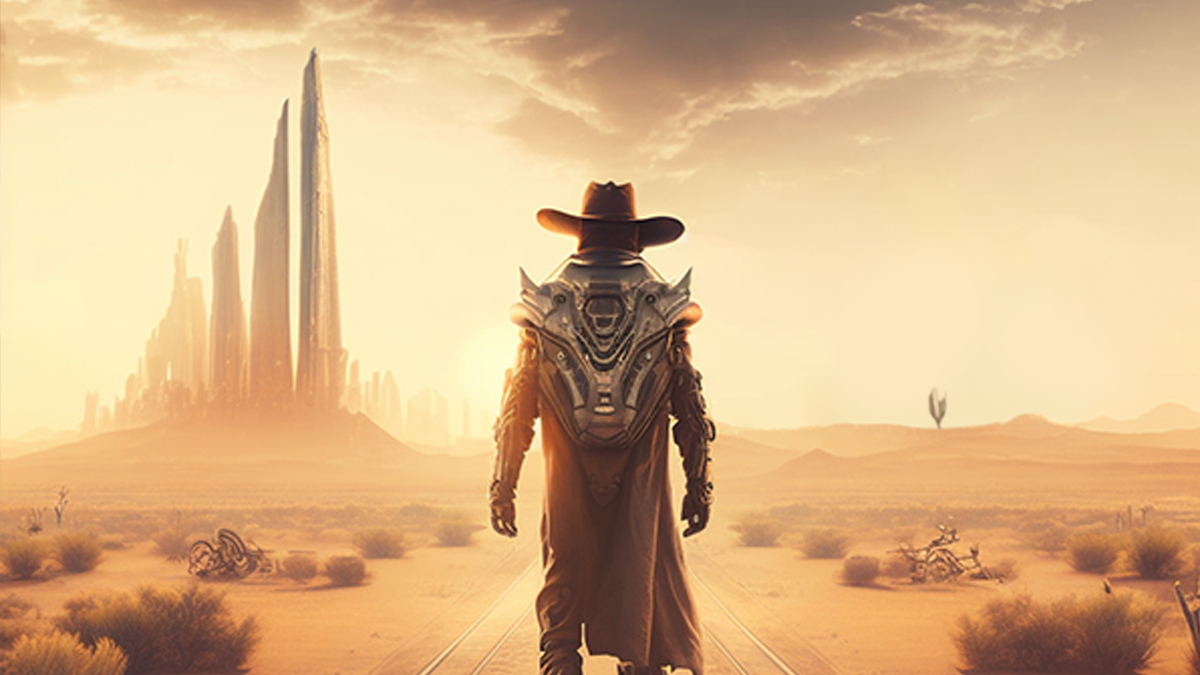
AI content generation and what it means for the future of carbon-based creatives.
The strides AI content generation has made in recent months have been staggering, not only in the scope of the technology but in the level of access. It was previously limited to those industrious and knowledgeable enough to train GAN models, but publicly available diffusion-based programs from the meme-factory of DALL-E to the genuinely scary Midjourney have put the power of AI content generation in the hands of the masses, even – pearl clutch – noncreatives. Since its release in November, ChatGPT has become the fastest adopted piece of tech and has also risen as a potential threat in education. Students are turning in AI-generated essays as original work. Who can blame them? But what does that mean for the future of AI in advertising? For copywriters?
I’m certainly not alone in my existential anxiety as a creative. Where NFTs dominated the conversation in art and tech last year, the undeniable theme in the interactive track at SXSW 2023 was AI. What can it do? How can we capitalize on it? Do I need to invest in a bunker? NFTs proved to be a flash in the pan that I was safe ignoring. From what I heard last weekend, AI? Not so much. For better or for worse, generative AI will be changing the way we work in the very near future, and today we’re at a crossroad as to what that future will look like.
AI Content Creation
To begin with the negative, generative AI as it exists is fraught with issues both technical and ethical. “Generative” AI defines a model that creates content out of nothing, but that’s not totally true. That “nothing” is actually the collective work of millions of artists, photographers and writers in the form of massive datasets that the AI learns from, synthesizes and uses to combine the average learnings in an output. And as many creators have already called out, most of this work is copyrighted, and it is almost never used with permission. Avijit Ghosh, Ph.D. Candidate at the Khoury College of Computer Sciences at Northeastern University whose research focuses on ethics in algorithms, could not understate the stakes in his panel: Generative AI on its current trajectory shifts profits from art creators to model owners. They’re using our work to build their machines, and they’re cutting us out.
Another major issue this model of averages poses is its tendency to perpetuate harmful biases and stereotypes. After all, these results are the means of the collective internet, including its meanest parts. Ghosh further described how algorithms are not neutral collectors of data but rather reflect the same biases as their owners, which – Scooby Doo villain reveal – are typically wealthy white men. This can produce some troubling outputs that are not so easily solved; even if you were to diversify the datasets, the learnings of problematic models remain.

But here’s the catch: since AI-generated content is the average of all work, it tends to be just that: average. The general consensus of speakers was that, at least for now, you only need to worry about a robot stealing your job if you’re not very good at it to begin with.
While the speed and diction of ChatGPT is impressive, it is also typically shallow, general and often confidently wrong. To utilize these tools to their fullest potential, you must already have a working knowledge and be competent in what you’re asking for in your prompts to tell where and how the machine missed the mark. As an experiment, Rohit Bhargava and Henry Coutinho-Mason had ChatGPT write a chapter for them in their new book, The Future Normal. And they were happy to share that it totally sucked. However, when that failed, they tried something less expected. They had it write a one-star review of the finished book, and they found it actually provided helpful feedback and revealed blind spots that aided in the editing process and led to a better final product.
Partnering With AI in Marketing
Which brings us to the upsides: machines don’t need to be our competition; they can be our creative partners. Kevin Kelly, founding executive editor of Wired magazine, had the most fantastic and optimistic take on the weekend with his framing of AI’s role in the culture: not as artificial humans, but as aliens. He posited that we have a poor understanding of our own intelligence. Throughout history, he believes technology, from farming to search engines, has risen to optimize and lighten loads we once thought could only be carried by human hands. Human brains excel at wonder, exploration and asking questions. We fall short at tedium, monotonous labor and (most of all) efficiency. He predicts that, while generative AI is the shiniest new toy, we will develop hundreds and thousands of these “alien species” in the future that will excel in types of cognition where we’re weaker. They can’t replace us because they are not us, but they can bring us and our work to unimaginable new heights if we use them correctly. He encouraged those in attendance to think of AI as the new “universal intern.” You work with your intern to make the job easier, but you would never turn in the intern’s work as your own.
AI can help us tackle the greatest hurdle creatives face: blank canvas syndrome. The hardest part can be getting started, and thinking about AI-generated content as a kickoff point rather than finished work can open some exciting possibilities. Use Midjourney for mood board projects or to explore compositions and ideas quickly for designs and illustrations. Use ChatGPT to run a dry first draft or to reword and critique ideas. If you want to get real down and dirty, you can even train your own models with datasets of your own work to tackle the more tedious and repetitive parts of the job in your style.
Experts Agree the Future Is Unclear
Sounds magical, but remember that although this may be the brightest potential outcome, it is not guaranteed. In almost every AI session I sat in at SXSW, each speaker was asked the million-dollar question. How can we keep this rapidly evolving technology from displacing real artists?
No one had a perfect answer. Adobe’s Brooke Harper claims AI can never replace the real thing, because the most precious part of art is the human process. It’s a lovely sentiment I wholeheartedly agree with but slightly cold comfort. I don’t doubt human art will always be made, but we’re paid for output, not process, when it comes to making a living.
Amy Webb, CEO of Future Today, shared this insight in her 2023 Tech Trends report: This technology is inevitable. The question is less about whether AI content generation will disrupt how we work and more about how we will react to it. She foresees a future knowledge gap exacerbating class divide. Workers who know how to utilize AI will adapt, and those who don’t will get left behind. You cannot beat them, so join them.
Kevin Kelly ended his session with this pivotal question from the audience, and he had this to say: “You engage with the technology in order to steer it. The makers of this technology, ultimately, had no idea how it would be used. It is by use that we understand it. We get to control it. If you try to prohibit the technology, if you try to ban it, you just don’t get to steer.”

What We Can Do for Now
So all in all, a little dystopia, a little ray of hope. Another day in the 2020’s saga. I didn’t leave Austin with any hard and fast answers, because the truth is no one knows exactly how this will play out. I did leave with three major takeaways on how I personally will engage with AI in marketing, and how we can best steer this technology going forward:
On an individual level: Be mindful of AI’s pitfalls, but start playing with it and experiment with how it can fit into your process. Seriously. Within the next few years, your career may depend on whether you’re a creative who knows how to write prompts that get results or one who doesn’t.
On a collective level: Save yourself, but don’t pull the ladder up behind you. The world of AI content generation is massively unregulated and rife with potential dangers that threaten to fuel existing injustices as well as threaten working artists and the culture they create for us all. Demand regulation. Join creators in ensuring our work is used fairly and for the betterment of everyone, not just tech investors.
The future is uncertain, but it can be beautiful – if we make it beautiful.
Interested in learning more or talking about how these trends may apply to your brand? Get in touch!
)
)